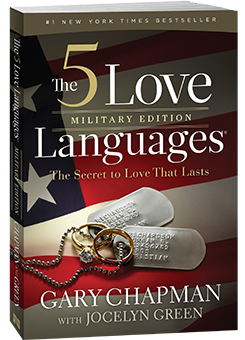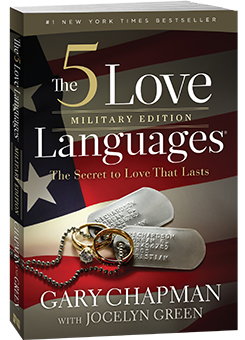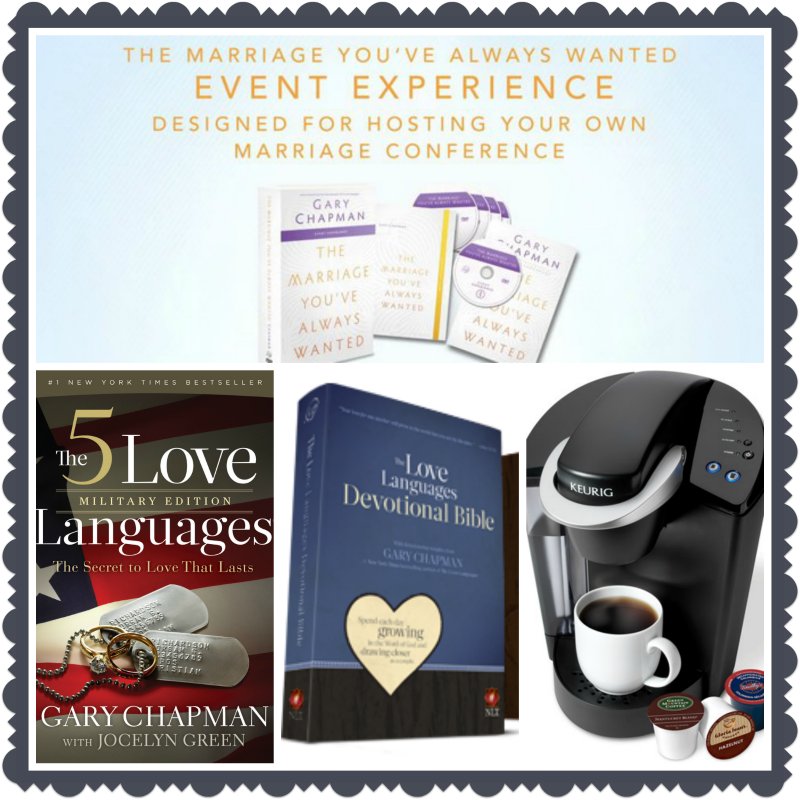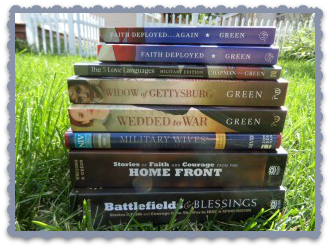
What Happens to Love in a Military Marriage?
I first met Chuck in Germany. He had a successful military career—twenty-three years under his belt. However, in his own words, “My marriage is in shambles. I don’t understand love and I’m not sure you can keep love alive in a military marriage. I was madly in love with my first wife. We were high school sweethearts. We got married right after graduation, and a month later I joined the military. The first couple of years were exciting, but eventually our love grew cold. We seemed like roommates living in the same house. On the day after our tenth anniversary she went home to visit her mother and never returned. I didn’t feel all that bad about it because by this time neither one of us loved each other.” “What about your second marriage?” I inquired. “It was about a year after our divorce that I met Cathy. At the time, she was also in the military. It was one of those ‘love at first sight deals,’” he said. “It was great. We had an awesome marriage until we got assigned to different bases. That was tough. So a year later, she left the military so we could be together. Then, the baby came along and things changed. We never rediscovered the connection we had in the first year of our marriage. It was like our love evaporated. She and our son left last Tuesday to go back to the States, and I know it’s just a matter of time until she files for divorce..” “When things were going well, how did you express your love to Cathy?” I asked. “I told her how beautiful she was. I told her I loved her. I told her how proud I was to be her husband. But after three or four years, she started complaining about petty things at first—like my not taking the garbage out, or my not hanging up my clothes. Later she went to attacking my character, telling me she didn’t feel she could trust me, accusing me of being unfaithful to her. She became a totally negative person. When I met her she was one of the most positive people I had ever known. That’s one of the things that attracted me to her, she never complained about anything. Everything I did was wonderful, but after a few years, I could do nothing right. I really think I tried. I honestly don’t know what happened.” I could tell Chuck was experiencing internal struggle over what was going on in his marriage, so I said, “You still love Cathy, don’t you?” “I think I do,” he said. “I don’t have the kind of love I had when we first got married, but I certainly don’t want a divorce. I think we could have made it, but I don’t think Cathy wants to work on the marriage.” I could tell this strong warrior had a wounded heart. “Did things go downhill after the baby was born?” I asked. “Yes,” he said. “I felt like she gave all of her attention to the baby, and I no longer mattered. It was as if her goal in life was to have a baby, and after the baby she no longer needed me.” “Did you tell her that?” I asked. “Yes, I told her. She said I was crazy. She said I did not understand the stress of being a twenty-four hour nurse, and I should be more understanding and help her more. I really tried, but it didn’t seem to make any difference. After that we just grew apart. After a while there was no love left, just deadness.” Chuck continued the conversation and I listened. “What happened to love after the first year of marriage?” he asked. “Is my experience common? Is that why we have so many divorces in the military? I can’t believe this has happened to me twice. And those who don’t divorce, do they learn to live with the emptiness, or does love really stay alive in some marriages?” The questions Chuck asked are the questions thousands of military couples are asking. Sometimes the answers are couched in psychological research jargon that is almost incomprehensible. Sometimes they are couched in humor and folklore. Most of the jokes and pithy sayings contain some truth, but they are often like offering an aspirin to a person with cancer. The desire for romantic love in marriage is deeply rooted in our psychological makeup. Books abound on the subject. Television and radio talk shows deal with it. The Internet is full of advice. So are our parents and friends. Keeping love alive in our marriages is serious business. With all the help available from media experts, why is it so few couples seem to have found the secret to keeping love alive after the wedding?
The Truth We’re Missing
The answer to those questions is the purpose of this book. It’s not that the books and articles already published are not helpful. The problem is we have overlooked one fundamental truth: People speak different love languages. My academic training is in the area of anthropology. Therefore, I have studied in the area of linguistics, which identifies a number of major language groups: Japanese, Chinese, Spanish, English, Portuguese, Greek, German, French, and so on. Most of us grow up learning the language of our parents and siblings, which becomes our primary or native tongue. Later, we may learn additional languages—but usually with much more effort. These become our secondary languages. We speak and understand best our native language. We feel most comfortable speaking that language. The more we use a secondary language, the more comfortable we become conversing in it. If we speak only our primary language and encounter someone else who speaks only his or her primary language, which is different from ours, our communication will be limited. We must rely on pointing, grunting, drawing pictures, or acting out our ideas. We can communicate, but it’s awkward. Language differences are part and parcel of human culture. If we are to communicate effectively across cultural lines, we must learn the language of those with whom we wish to communicate. In the area of love, it is similar. Your emotional love language and the language of your spouse may be as different as Chinese from English. No matter how hard you try to express love in English, if your spouse understands only Chinese, you will never understand how to love each other. Chuck was speaking the language of words of affirmation to Cathy when he told her she was beautiful, he loved her, and he was proud to be her husband. He was speaking love, and he was sincere, but she did not understand his language. Perhaps she was looking for love in his behavior and didn’t see it. Being sincere is not enough. We must be willing to learn our spouse’s primary love language if we are to effectively communicate love. My conclusion after thirty-five years of marriage counseling is that there are five emotional love languages—five ways people speak and understand emotional love. In the field of linguistics a language may have numerous dialects or variations. Similarly, within the five basic emotional love languages, there are many dialects. That accounts for the magazine articles titled “10 Ways to Let Your Spouse Know You Love Her,” “20 Ways to Keep Your Man at Home,” or “365 Expressions of Marital Love.” There are not 10, 20, or 365 basic love languages. In my opinion, there are only five. However, there may be numerous dialects. The number of ways to express love within a love language is limited only by one’s imagination. The important thing is to speak the love language of your spouse. Seldom do a husband and wife have the same primary emotional love language. We tend to speak our primary love language, and we become confused when our spouse does not understand what we are communicating. We are expressing our love, but the message does not come through because we are speaking what, to them, is a foreign language. Therein lies the fundamental problem, and it is the purpose of this book to offer a solution. That’s why I dare to write another book on love. Once we discover the five basic love languages and understand our own primary love language, as well as the primary love language of our spouse, we will then have the needed information to apply the ideas in the books and articles. Once you identify and learn to speak your spouse’s primary love language, I believe you will have discovered the key to a long-lasting, loving marriage. These languages can be spoken even when you are separated by deployment. Love need not evaporate after the wedding, but in order to keep it alive most of us will have to put forth the effort to learn a secondary love language. We cannot rely on our native tongue if our spouse does not understand it. If we want them to feel the love we are trying to communicate, we must express it in his or her primary love language. *Learn more about The 5 Love Languages Military Edition! Pssst. If you're not military, check out the original The 5 Love Languages!
The Give-Aways!
Here's what we're dying to give away:
Grand Prize:
- The Marriage You've Always Wanted Event Experience. (link is external)This is Dr. Chapman's full conference (five hours) on DVD, which includes the book of the same title as well as a Participant's Guide. (Retail $199.99) Watch it alone, as a couple, or with a group.
- Paperback edition of The 5 Love Languages Military Edition
- The Love Languages Devotional Bible (link is external), SoftTouch edition
- Keurig coffee machine (for real)
- Box of K-cups for said Keurig coffee machine
Second Place Winner:
- The Marriage You've Always Wanted Small Group Experience. The Small Group Experience features the same 5 lessons as the event experience, outlined in a provided leader and participant guide, along with video clips to enhance and support each segment. Daily devotionals for couples are also included.
- A set of every book I (Jocelyn Green) have ever written or co-authored, both fiction and nonfiction. Includes: The 5 Love Languages Military Edition; Faith Deployed: Daily Encouragement for Military Wives; Faith Deployed . . . Again: More Daily Encouragement for Military Wives; The Military Wives New Testament with Psalms & Proverbs; Stories of Faith and Courage from the War in Iraq & Afghanistan; Stories of Faith and Courage from the Home Front; plus Civil War novels Wedded to War and Widow of Gettysburg.
- The Love Languages Devotional Bible (link is external), hardcover
- $50 Amazon gift card
Third Place Winner:
- Complete set of my eight books (see list above)
- $25 Amazon gift card
Can you believe this? I am so pumped. To enter the give-away, use the Rafflecopter tool below to rack up entries. I'm going to give you lots of ways to do it, so read carefully. The give-away will remain open from today until Armed Forces Day, May 17. Once the winners are chosen, I'll email them. Winners, you'll have three days to get back to me with your mailing address, so watch those inboxes! I'd hate for you to miss out on your prize, but if I don't hear from you, I'll have to select new winners. Also, if you have never left a comment here before, I will need to "approve" it before it shows up. Never fear, I'll be checking throughout the day to try to keep up. Thanks and good luck! a Rafflecopter giveaway (link is external)





Comments
Pages
Add new comment